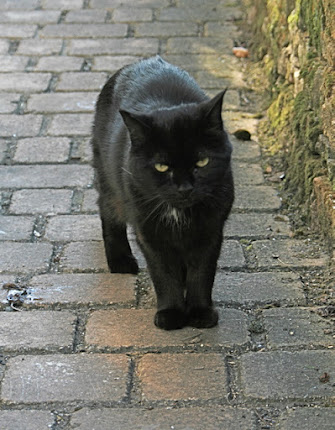Dogs have to wear collars in the UK by law but should cats have to wear them? Dogs don't mind them but dogs are subservient animals. Obviously cats like me don't have to because I am an indoor-only cat.
What about others? The advantages of a collar are that humans know that you have a human pet. They are less likely to scoop you up and take you into a new home. If our home phone number is on the collar it might help when we are lost (but microchipping is better for that). If the collar is a fluorescent one, it can help car drivers notice us at night and slow down rather than run us over.
But the disadvantages of collars for us cats are many.
If they are too loose, we may get our front paws stuck in them and be unable to walk properly. The collar bites into the flesh of our necks and causes a terrible wound. A loose collar can also get caught up on a branch or wire so that we are trapped and cannot pull free.
Every year cats are taken to the vet for collar injuries.
 |
| Buy one for your human here |





